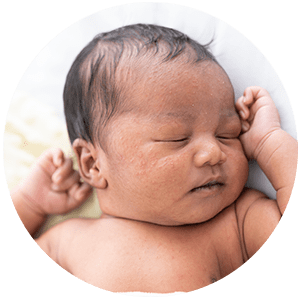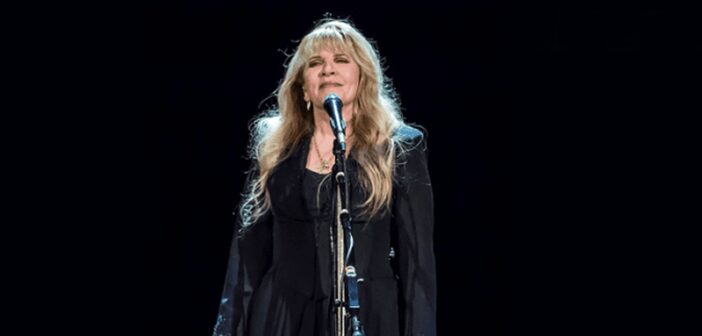Texas Right to Life has previously reported on the powerful anti-Life pressure in the music and entertainment industries. Rising stars are frequently told that ending a child’s Life in abortion is the only way they can advance their careers. Further evidence of this Culture of Death in entertainment comes from recent reflections by Fleetwood Mac singer Stevie Nicks.
In an interview with the Guardian, Nicks spoke about aborting the child she conceived in 1979 when dating Eagles singer Don Henley. She attributes her band’s success to her decision to end her child’s life in abortion, saying, “If I had not had that abortion, I’m pretty sure there would have been no Fleetwood Mac.” Nicks explained, “There’s just no way that I could have had a child then, working as hard as we worked constantly. And there were a lot of drugs, I was doing a lot of drugs … I would have had to walk away.”
After a pause, Nicks further attempted to justify her decision, telling the interviewer, “And I knew that the music we were going to bring to the world was going to heal so many people’s hearts and make people so happy. And I thought: you know what? That’s really important. There’s not another band in the world that has two lead women singers, two lead women writers. That was my world’s mission.”
As the abortion industry so often does, Nicks creates a false dilemma in which her child’s life is incompatible with writing music.

Don’t miss important Pro-Life stories like this.
Get the Pro-Life Weekly Highlight just once a week:
The enjoyment that Fleetwood Mac’s music brought to the world is not directly dependent on killing a preborn baby in abortion. There are many ways that artists find to continue work while welcoming their children. When extraordinary circumstances mean that welcoming a child will require time off from work, this is a sacrifice that parents should be expected to make with the support of their communities. When parents are unable to meet the needs of their children, placing the child for adoption means that the child’s life will not be violently ended in abortion.
Nicks has previously spoken about this abortion, and she was not nearly as glib. In an interview in 2014, Nicks confirmed Henley’s claim that the couple named their preborn baby Sara. Nicks said, “Had I married Don and had that baby, and had she been a girl, I would have named her Sara.” Nicks was quick to add that she knew another woman named Sara who also inspired the Fleetwood Mac song “Sara,” and that the song was not solely about her aborted baby.
In earlier interviews, Nicks revealed grief at her abortion and suggested she had four different abortions throughout her career. In a 1992 interview, Nicks said, “To give up four babies is to give up a lot that would be here now. So that bothers me, a lot, and really breaks my heart. But they’re gone, so…” Suggesting she did not want to end the lives of her four children, Nicks went on to claim she couldn’t have children “because I was too busy” and “I had all these commitments.”
Like other celebrities who have revealed their abortion stories, Nicks story is not the narrative of freedom and empowerment she has tried to paint in recent years. Earlier interviews reveal the extent of the trauma and grief she experienced. The beauty her music brought to the world does not make up for the death of her preborn child because the music was not directly dependent on violently ending an innocent human life, as much as Nicks may try to claim.
Nicks, who is anti-Life, has tried to use her devastating abortion story to justify the legal killing of preborn babies. However, even abortion stories from anti-Life celebrities show just how often abortion decisions are driven by fear. Even celebrities, who appear to be wealthy and influential, fear that they will not be supported in choosing Life and will jeopardize their careers. Nicks’ devastating story of loss, and so many like hers, should remind us to cheer for and support the rare celebrities who have the courage to stand for Life.

